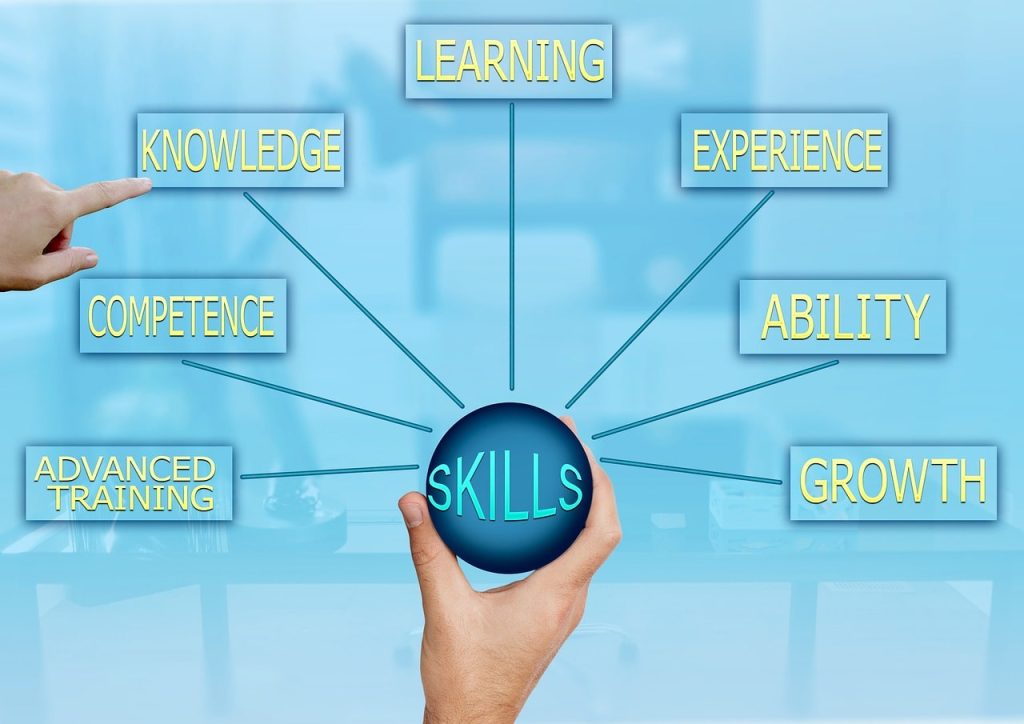Getting a degree at 30 might seem late, but it’s actually a great time to go back to school. Many people find success and fulfillment by pursuing higher education in their 30s. This post will explore why it’s never too late to get your degree and how it can benefit you.
Let’s get started.
Why You Should Opt For A Degree at 30: Quick Verdict
- You have more life experience and focus at 30
- Better career opportunities and earning potential
- Personal growth and sense of achievement
- Networking with diverse peers
- Setting a positive example for family and friends
- Never too late to pursue your dreams and change careers
The Changing Landscape of Education
Before delving into the reasons for pursuing education at 30, let’s first understand how the educational landscape has transformed in recent years.
1. Increasing Accessibility to Education
In today’s digital era, education is no longer limited to traditional classrooms. Online learning platforms and flexible study options have made education accessible to people of all ages.
You can pursue a degree from the comfort of your home, allowing you to balance your studies with work and family commitments.
2. Evolving Career Demands
The job market is constantly evolving, with employers seeking individuals who possess up-to-date skills and knowledge. Returning to school can allow you to acquire new qualifications and stay competitive in your field.
Employers value continuous learning, and obtaining a degree at 30 showcases your dedication and commitment to professional growth.
3. Lifelong Learning Mindset
A lifelong learning mindset is increasingly embraced in today’s society. Learning should not be confined to a specific phase of life; it should be a continuous journey. Going back to school at 30 embodies the spirit of lifelong learning, allowing you to enrich your knowledge and explore new areas of interest.
7 Reasons Why You Should Get Your Degree at 30
Let’s dive into the seven compelling reasons why getting your degree at 30 can be a game-changer for your personal and professional life.
1. Enhancing Career Opportunities
One of the primary motivations for pursuing higher education is the potential to enhance your career opportunities.

A degree can open doors to higher-level positions, increase your marketability, and qualify you for roles that may have been out of reach previously. You can position yourself as a valuable asset in your chosen field by acquiring specialized knowledge and skills.
2. Personal Growth and Fulfillment
Education is not just about earning a piece of paper; it’s a transformative journey that fosters personal growth and fulfillment. Going back to school at 30 allows you to expand your horizons, explore new subjects, and gain a deeper understanding of the world.

It challenges you intellectually, broadens your perspectives, and boosts your confidence, making you a more well-rounded individual.
3. Expanding Professional Network
Networking plays a crucial role in career advancement. Returning to school at 30 offers an excellent opportunity to connect with like-minded individuals, professors, and industry experts.

Building a strong professional network can lead to valuable collaborations, mentorship opportunities, and even job referrals. These connections can greatly benefit your career trajectory.
4. Adapting to Technological Advancements

The rapid advancement of technology has transformed various industries. By pursuing education at 30, you can familiarize yourself with the latest tools, software, and techniques relevant to your field. This technological fluency will give you a competitive edge as employers increasingly seek comfortable individuals navigating the digital landscape.
5. Better Earning Potential
While financial considerations should not be the sole driving factor for pursuing education, it’s worth noting that a degree can significantly impact your earning potential. Statistically, individuals with higher levels of education tend to earn more over their lifetimes.

By investing in your education at 30, you increase the chances of securing higher-paying positions and achieving financial stability in the long run.
6. Setting a Positive Example for Others
Returning to school at 30 sets a powerful example for those around you, especially for younger generations. It showcases the importance of lifelong learning, perseverance, and the pursuit of personal growth. By demonstrating your commitment to education, you inspire others to embark on their own educational journeys, fostering a culture of continuous learning.
7. Broadening Knowledge and Skills

Education is a gateway to acquiring new knowledge and developing valuable skills. By going back to school at 30, you have the opportunity to delve deeper into subjects that interest you and gain expertise in specific areas. This expanded knowledge and skill set can contribute to your personal and professional development, making you a more versatile and valuable asset in the workforce.
4 Reasons Why Going Back to School at 30 Might Not Be For You
While pursuing education at 30 holds numerous advantages, it’s important to consider individual circumstances and potential challenges. Let’s explore four reasons why going back to school might not be suitable for everyone at this stage in life.
1. Financial Considerations
Education can be a significant financial investment. Tuition fees, textbooks, and other associated costs can add up, potentially strain your finances. Evaluating your financial situation and exploring options such as scholarships, grants, or part-time work is crucial to manage the costs effectively.
2. Time Commitment and Balancing Responsibilities
Returning to school requires a substantial time commitment, which can be challenging when you already have work and family responsibilities. Balancing coursework, assignments, and exams with your existing commitments requires careful planning, time management, and support from your loved ones.
3. Career Stability and Advancement
If you are already established in your career and have achieved a certain level of stability and advancement, going back to school may disrupt your current trajectory. Consider whether the benefits of obtaining a degree outweigh the potential setbacks in terms of career progression. It’s essential to assess the relevance of the degree to your field and the potential impact on your professional growth.
4. Personal Circumstances and Priorities
Everyone’s life circumstances are unique, and going back to school at 30 may not align with your personal priorities or responsibilities. Factors such as family commitments, health issues, or other personal obligations might make it challenging to dedicate the necessary time and energy to pursue education at this stage. Evaluate whether the timing is right for you based on your current life situation.
How to Prepare for Enrolling in College at 30?
If you’ve decided that going back to school at 30 is the right choice for you, here are some essential steps to help you prepare for this exciting chapter:
1. Clarify Your Goals and Motivation
Clearly define your goals and motivations for pursuing education at 30. What do you hope to achieve? How will it contribute to your personal and professional growth? Having a clear sense of purpose will guide you through the challenges and keep you focused on the end result.
2. Research Programs and Institutions
Thoroughly research different programs and institutions to find the one that best aligns with your interests and career aspirations. Consider factors such as curriculum, reputation, faculty expertise, and support services available. This research will ensure that you make an informed decision and choose a program that meets your needs.
Some schools, such as Molloy, might accept credits for classes you didn’t take if you have relevant experience. These credits come from Prior Learning Assessments, which measure your knowledge in a subject even if you never took a formal class. Talk to your prospective colleges to find out what options you have to use previous credits or life experiences towards your degree.
3. Plan Your Finances
Over 42 million Americans with federal student loan debt owe an average of $36,406 per person. This explains why many adults aren’t returning to college, even if it means reducing their job opportunities. Online colleges cost less than campus-based institutions and help save money on expenses like student housing, daily commutes, and meal programs.
Alternatively, if you’re attending a traditional university, you can apply for financial aid through the FAFSA, which has no age limit for federal aid. Additionally, you can check with your employer for education-related benefits.
4. Manage Your Time Effectively
Returning to school at 30 requires effective time management skills. Create a schedule that balances your coursework, work responsibilities, and personal commitments. Prioritize tasks, set realistic goals, and establish a routine that allows you to make progress without feeling overwhelmed.
5. Seek Support from Family and Friends
Enrolling in college at 30 can be emotionally and mentally challenging. Reach out to your family and friends for support and understanding. Communicate your goals and the importance of their support in your educational journey. Surrounding yourself with a strong support system will help you navigate the ups and downs of returning to school.
Getting A Degree at 30 From Online Schools
Online schools are the best and most convenient option if you are considering getting a degree at 30. As an adult, you likely have a lot on your plate already. With work or other responsibilities, making time for traditional brick-and-mortar schools can be challenging.
But with online schools, you can complete your degree on your schedule and from the comfort of your own home. Plus, many online schools offer more affordable tuition fees than traditional ones, making pursuing your education easier without breaking the bank.
Related Reads:
Conclusion: Get Your Degree at 30
Earning your degree at 30 is a smart move that can open new doors in your life. With more wisdom, clear goals, and strong motivation, you’re well-equipped to succeed in your studies.
Whether you’re looking to advance in your current field or start a new career, a degree can help you achieve your goals. Remember, it’s never too late to invest in yourself and your future.

